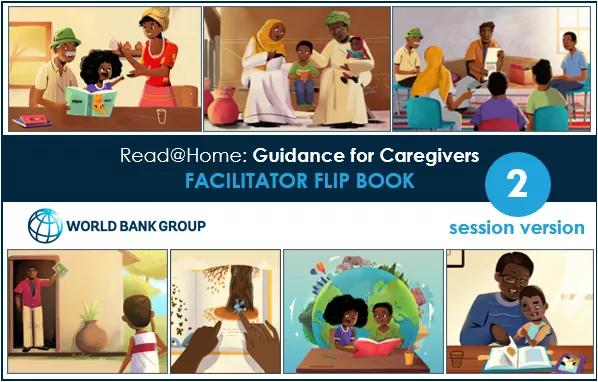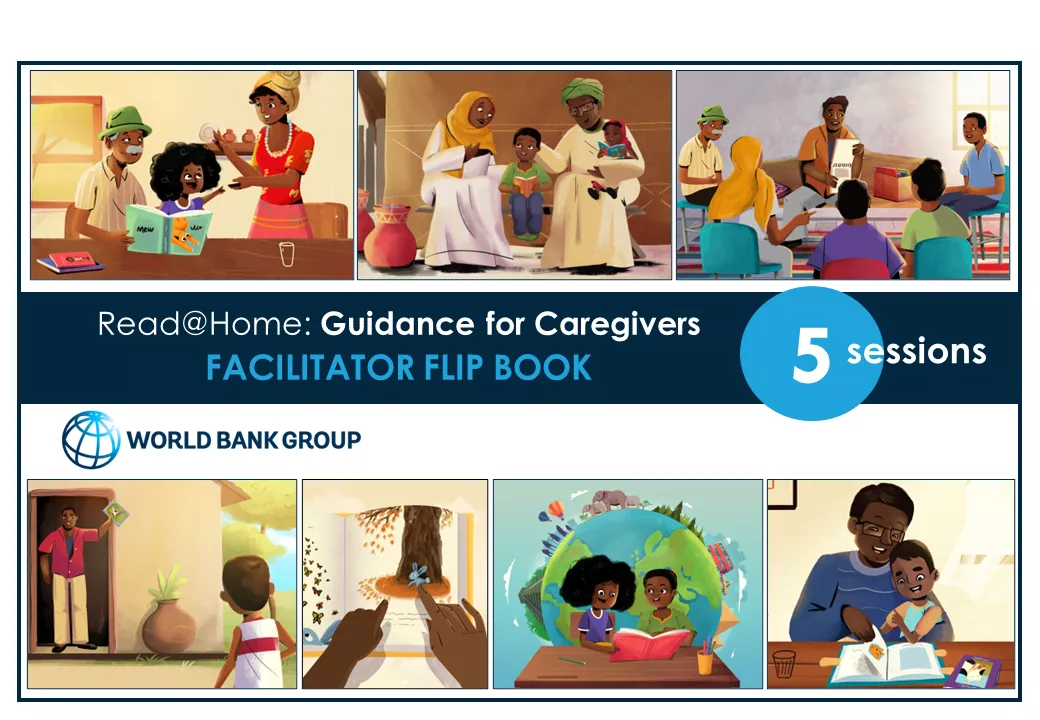This page provides information on Language Education Policies for numerous countries.
Search the site
No one would dispute that South African schools are performing below expectations. Diagnosis of the reasons for the inefficiency of South African schools, compared with more poorly resourced systems in the Southern and Eastern African subcontinent, is the first step to improving the quality of learning outcomes.
In 2017, the Department of Basic Education (DBE) said that 27% of public schools nationally are implementing the Incremental Introduction of African Languages (IIAL) in Grades 1 and 2 in 2017 despite challenges, which included an inadequate number of willing and competent teachers as well as negative attitudes and misconceptions about African languages being inferior in the global scheme.


This flip book is designed to be used over two meetings with caregivers, with content divided into two sessions.


This flip book is designed to be used over three meetings with caregivers, with content divided into five sessions.
This paper was written for the 5th IBBY Africa Regional Meeting, which was held 29 August-1 September 2019 in Accra, Ghana. The conference took as its theme: the importance of illustrations in children’s books.
This paper was written for the 5th IBBY Africa Regional Meeting, which was held 29 August-1 September 2019 in Accra, Ghana. The conference took as its theme: the importance of illustrations in children’s books.
Openly licensed resources are ‘free’ to access, but there are significant creation, adaptation, production, and use costs. The long-term sustainability of local-language publishing requires that these costs be met fairly, using financial models that will enable people to establish, grow, and maintain effective content creation organizations.
This presentation was created for the Association for the Development of Education in Africa (ADEA) workshop in Nairobi on National Book and Reading Policies for Africa from 17th to 19th June 2019. The presentation addresses issues related to the cost of storybook creation and adaptation of storybooks.
This presentation was delivered delivered on 22 May, 2019 at the 3rd African Library & Information Association (AfLIA) Conference and 5th African Library Summit, held at the Weston Hotel in Nairobi, Kenya. The theme of the conference was ‘African libraries creating the Africa we want and achieving the Sustainable Development Goals’.
A key barrier to improving children's reading skills is limited or no access to textbooks and reading materials. An open education resource (OER) policy could help progress Early Grade Reading (EGR) efforts and is now a policy requirement for all United States Government-funded projects. Can stakeholders in the book production chain embrace an OER model, finding benefit in the approach for their businesses?
Restrictive copyrights can limit how likely reading resources are to be used, shared or repurposed, which significantly diminishes the potential impact of the materials. Donors and international organizations are increasingly investing in open educational resources, as they are interested in ensuring that educational materials reach the greatest possible number of learners, and that broad access to those material




